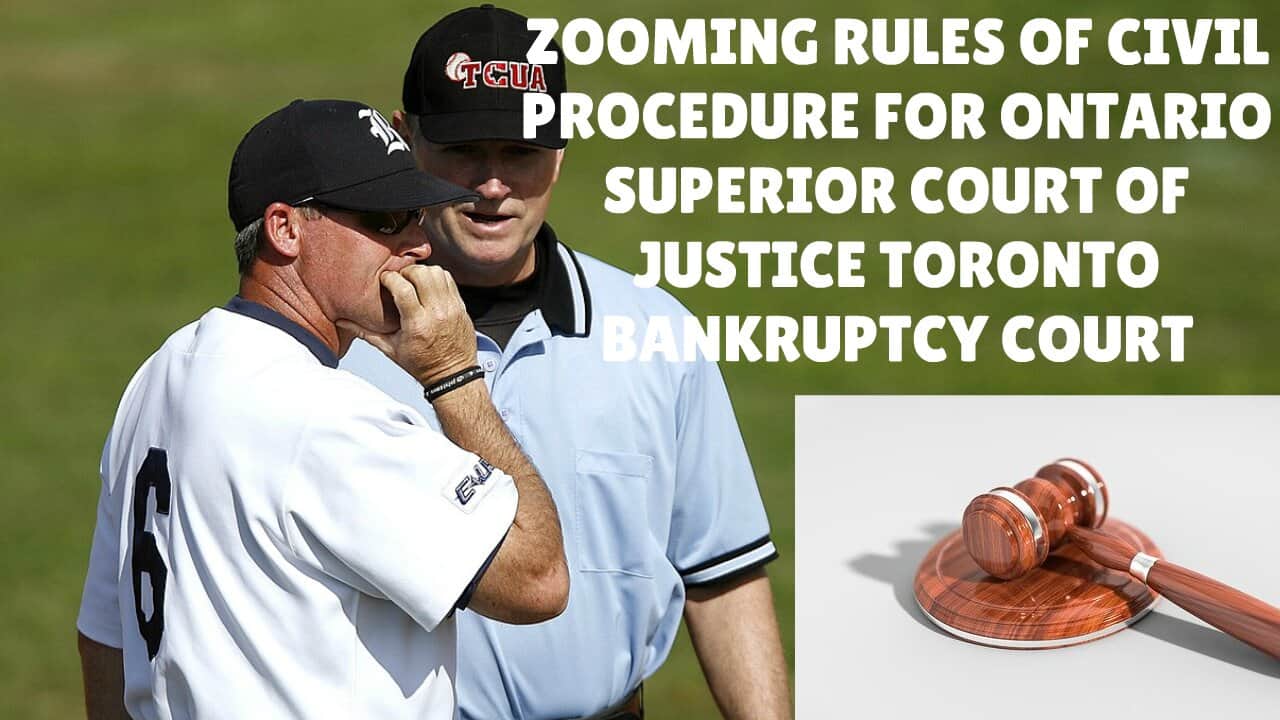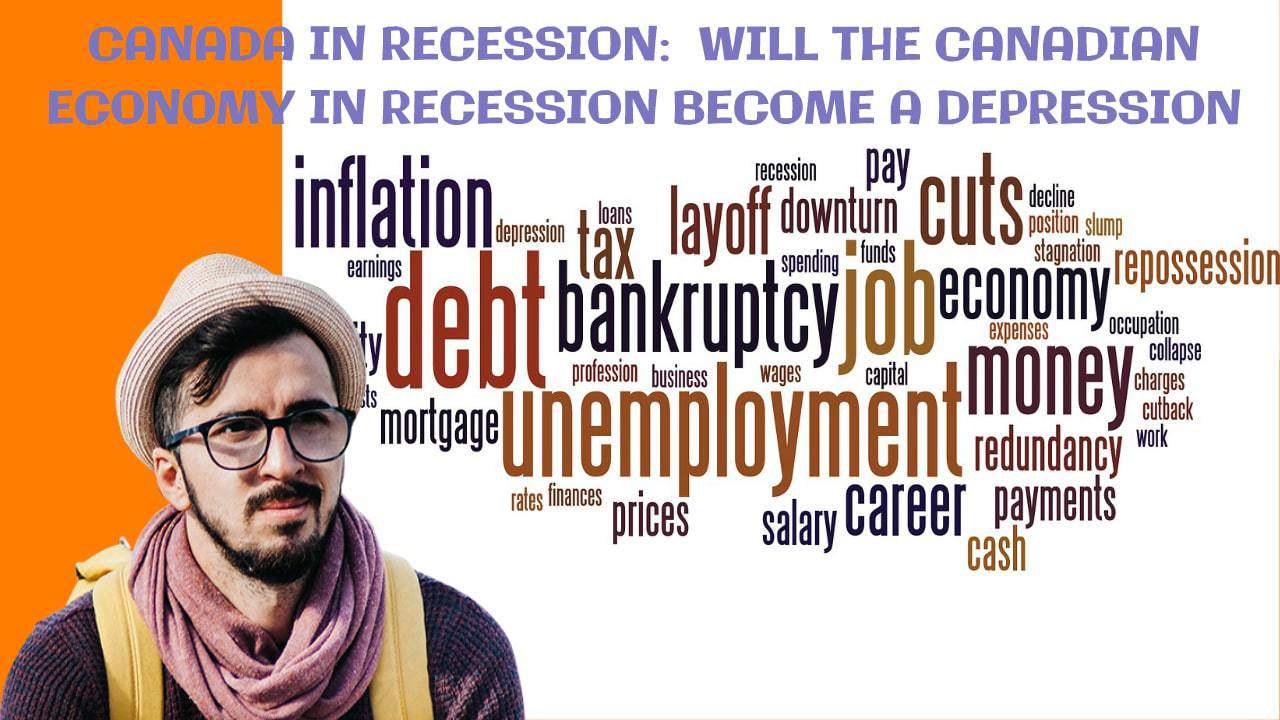The Ira Smith Trustee Team is absolutely operational and Ira, in addition to Brandon Smith, is readily available for a telephone consultation or video meeting.
[monkeytools msnip=”https://monkeyplayr.com/playr.php?u=5173&p=22348″]
To debt do us part introduction
To debt do us part many times is confused with Til Debt Do Us Part. That of course was the Canadian television series created by Frantic Films for Slice in Canada, Zone Reality in the UK as well as CNBC in the United States. It was hosted by Gail Vaz-Oxlade, who weekly advised a couple that is in debt and also having troubles in their marriage or relationship.
Over the last couple of days, I read two crazy articles involving what people have done with federal coronavirus relief money. One from the United States and the other from Canada:
- Florida man accused of using federal coronavirus relief loans on Lamborghini
- Botox, pot, booze: This 28-year-old spent almost half of her CERB in a single week. With no plans to settle, she needs to pay $16K in debt and wants to travel again
The title catchphrase to debt do us part seems particularly apt to me in the context of the Canadian federal government COVID-19 Economic Response Plan to assist Canadians and their companies. Especially if people are going to do crazy things with money they desperately need to live on.
With that as the backdrop, I thought it would be a good time in this Brandon’s Blog to review where we are at this stage of the pandemic and why no matter how much good information about money management there may be available to people, some will insist on to debt do us part.
This 2020 to debt do us part is something brand new
The economic pain and worry Canadians and businesses are experiencing this time around is something brand-new. It is hitting people and companies that have always made their repayments on time. To debt do us part was never part of their vocabulary or lifestyle. They’ve never needed to get a deferral. It is very unpleasant and unsettling. To debt do us part is a very real worry for every Canadian today.
Now that the majority of us have remained in quarantine, we’ve had a lot of time to look at our money behaviours. Have they transformed since we’ve been able to take a look at our cash? Are we most likely to be taking a look at it differently now moving forward? I say yes. I don’t assume any person is going to exit this COVID-19 pandemic unscathed financially.
I have been blogging for years about the need for every Canadian to have in their monthly budget a line item for putting savings into an emergency fund in case of an unforeseen crunch. Before the lockdown, many Canadians were in trouble already. In the 3rd quarter of 2019, we saw household debt to income numbers at around 176%. So that statistic means that for every single dollar we brought in, we owed $1.76. Typically, for an emergency reserve, you should have 3 to 6 months of liquid funds readily available to you. Most Canadians did not.
An emergency fund doesn’t have to be in a very low interest-bearing savings account that you can go to an ATM for. Certainly, it also didn’t need to be cash stuffed in your mattress in the house. It could have been in the form of financial investments that could be liquidated fairly quickly without suffering a loss, should an emergency arise and you needed to get your hands on some money quickly.
By an emergency situation I mean something like a major medical expense, being laid off of work or something like this coronavirus pandemic causing you a loss of earnings such as now being experienced by lots of people as our economy shut down.
The government had no choice for to debt do us part
As a result of so many people being so scared and facing to debt do us part in the face, the federal government had no choice but to come up with a support package for Canadians and Canadian companies. The combination of support programs is wrapped up in the omnibus title of the COVID-19 economic response plan. I have written before on many of the support programs. The federal assistance programs for Canadian business include:
- Canada Emergency Wage Subsidy (CEWS)
- Temporary 10% Wage Subsidy
- More time to pay income taxes
- Canada Emergency Business Account interest-free loans
- Loan Guarantee for Small and Medium-Sized Enterprises
- Canada Emergency Response Benefit (CERB) for the self-employed business people and Canadian workers.
- Canada Emergency Commercial Rent Assistance (CECRA)
- Canada Emergency Wage Subsidy (CEWS)
- More time to pay when 2019 income taxes are due
- More time to pay HST
- Mortgage approval and deferral rules
When government support ends to debt do us part
The Canadian federal government had no choice but to provide an aid bundle for Canadians. This point highlights the truth that maybe most Canadians were not prepared with an emergency fund. To debt do us part was part of their everyday life. Unlike the two people in the articles I mentioned in the introduction to this Brandon’s Blog, I think this has been a big wake up call for a lot of people about their to debt do us part.
This is not the moment to be talking to your lender for new credit when you have too much debt. However, it is a perfect time to start thinking about your monthly after-tax income and your monthly spending. You want to get that under control so that you are not spending more than you earn and that your monthly budget has a line for your emergency fund savings. You need to first get on the solid monetary ground while the government’s support programs are still in force.
But what happens to debt do us part when the support programs and the various deferral programs offered by the banks end? In several previous blogs, I hypothesized that the Canadian government cannot end the programs on the original end dates of September 1, 2020. My feeling was that Canadian people and companies would not be ready to go from support to no support so drastically and would have to extend the programs potentially until the end of the 2020 calendar year. Some of these blogs were:
- INSOLVENCIES IN CANADA: THE CALM BEFORE THE SCARY STORM?
- CANADIAN BUSINESS: WHAT WILL BE THE ULTIMATE BUSINESS IN ONTARIO RECOVERY PROGRAM?
Since then, the federal government has announced several extensions to certain programs:
- Canada Revenue Agency (CRA) is expanding the payment due day for existing year personal, company, and trust tax returns, including instalment payments, from September 1, 2020, to September 30, 2020.
- The federal government will give eight added weeks of benefits for people whose jobs or income have actually disappeared as a result of the COVID-19 pandemic, however, only if they look for a job and take one when it’s reasonable to do so.
- A CEWS extension that will prolong the program up until November 21, 2020, with the intent to supply additional support up until December 19, 2020.
So with these extensions providing extra support, now is the time for everyone to try to get their financial house in order.
How do people avoid to debt do us part in the first place?
I was asked recently in a Facebook business group I belong to:
How do people better put themselves in better financial health in the first place?
My answer was:
That is a great question. It all has to start with understanding clearly your monthly after-tax income, monthly expenses and having a budget that you follow. Each month the budget must include putting something away to an emergency fund and making sure that your income tax is being paid regularly. So that what you are spending is truly after-tax money. All of that can be summed up as living within your means. That goes for your business too.
So while there are still government support programs, now is the time to take a hard critical look at your financial situation and make concrete plans to try to avoid the realities of to debt do us part.
People were already teetering on solid ground. It’s most likely to underscore the value of actually meeting with an expert if you do not know how you get out of this debt on your own. Sitting down with someone like a qualified financial advisor, a community-based credit counsellor or a licensed insolvency trustee is what you need to do.
If the debt is howling at you, you need to really have a strategy to get out of it. When you intend to drop weight, you seek a weight reduction program to educate you. You may additionally choose a personal trainer to help you with an exercise program. So, why not locate somebody to assist you and educate you to shed your debt as well as keep it in control?
You do not need to do that all on your own. It’s going to take some imagination, maybe some cost-cutting, maybe some increased revenue or a combination of all of these. We’re not out of this yet, and eventually, the deferrals and support programs will end. Take action now so that you can have a clear path going forward. Nobody says it will be easy, but to debt do us part does not have to be part of your life forever.
Payday loans and credit card advances are not the answer to debt do us part
Something individuals in the red can refrain from doing is trying to go deeper into debt by raising money on a brand-new debt to repay an old one. When you already have too much debt, the only likely source for this kind of cash that I see is either cash advance on an existing charge card or a payday loan. Regardless, you will be paying a lot more interest than on the original financial obligation you are attempting to refinance.
Payday loans are extremely easy to get. You can go shopping online. You can have cash in your account within a couple of hours. The issue is, depending on the province that you’re in, these are astronomical interest rates as high as 600 percent. It might fix that short-term issue, but what you’re mosting likely to have to handle in the future normally winds up being more payday advances rolling right into a really negative situation. Very same with the cash advance from your credit card. Not as bad as payday loans, however still 20% to 29% rate of interest doing that.
The courts are shut now. Financial institutions are not chasing anybody. People are still obtaining those deferrals. You are not having to pay tax obligations. You can defer paying your tax obligations until the end of September.
So as quickly as we get back to a “new normal”, creditors will certainly begin to call. You will certainly have to pay your mortgage, your taxes and your various other costs. Will that be something people will have the ability to afford? While we still have this “break”, it is actually the very best time to look at your overall picture, your revenue and also expenditures, your month-to-month spending plan. It is additionally the best time to get the expert help you need if you can not do it on your own. This is the ideal time to map out a strong strategy.
To debt do us part summary
I hope you have found this to debt do us part Brandon’s Blog interesting and helpful. The Ira Smith Team family hopes that you and your family members are remaining secure, healthy and well-balanced. Our hearts go out to every person that has been affected either via misfortune or inconvenience.
We all must help each other to stop the spread of the coronavirus. Social distancing and self-quarantining are sacrifices that are not optional. Families are literally separated from each other. We look forward to the time when life can return to something near to typical and we can all be together once again.
Ira Smith Trustee & Receiver Inc. has constantly used clean, safe and secure ways in our professional firm and we continue to do so.
Income, revenue and cash flow shortages are critical issues facing entrepreneurs, their companies and individual Canadians. This is especially true these days.
If anyone needs our assistance for debt relief Canada COVID-19, or you just need some answers for questions that are bothering you, feel confident that Ira or Brandon can still assist you. Telephone consultations and/or virtual conferences are readily available for anyone feeling the need to discuss their personal or company situation.
The Ira Smith Trustee Team is absolutely operational and Ira, in addition to Brandon Smith, is readily available for a telephone consultation or video meeting.













